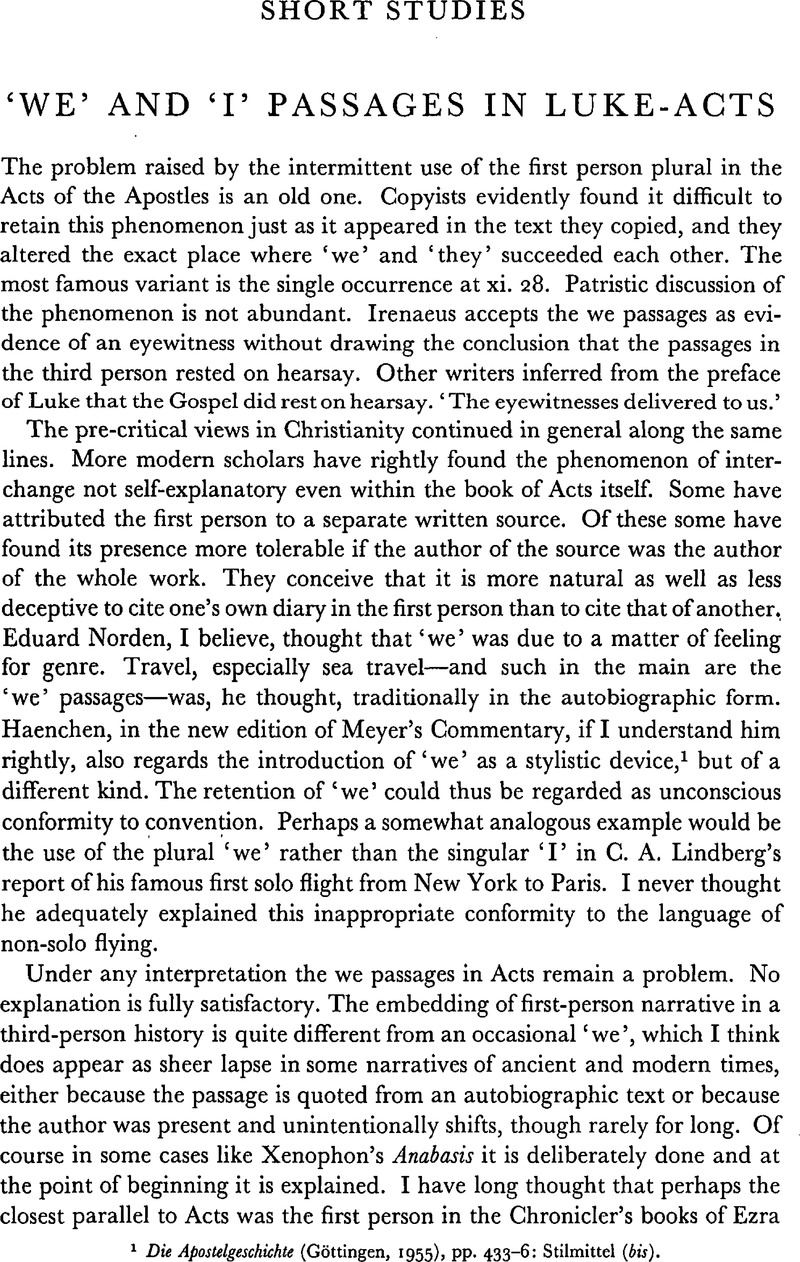Article contents
‘We’ and ‘I’ passages in Luke-Acts
Published online by Cambridge University Press: 05 February 2009
Abstract

- Type
- Short Studies
- Information
- Copyright
- Copyright © Cambridge University Press 1957
References
page 128 note 1 Die Apostelgeschichte (Göttingen, 1955), pp. 433–6: Stilmittel (bis).Google Scholar
page 129 note 1 The only other instances of ‘we ‘ vs. Paul are xx. c 13–14 and xxi. 12–14, and under the circumstances are perfectly natural.
page 130 note 1 I assume that xx. 5–xxi. 18 is to be reckoned one ‘we’ passage in spite of the interview of Paul at Miletus with the Ephesian elders in xx. 17–38.
page 131 note 1 Ropes, J. H., J. T. S. xxv (1927), p. 71.Google Scholar In this article Ropes called attention to the bearing of the preface on the ‘we’ passages.
page 131 note 2 Beginnings of Christianity, 11 (1922), 501 f. and especially The Expositor, 8th ser. no. 144 (December, 1922), pp. 401–22.
page 131 note 3 For English readers the common version's ‘trace the course’ has contributed to the misunderstanding now that ‘trace’ in English has acquired the connotation of enquiry or discovery and not merely of simple following. Vincent Taylor appears to apply the participle to the previous drafting of Proto-Luke (The Formation of the Gospel Tradition, 1933, p. 200).Google Scholar
- 2
- Cited by




